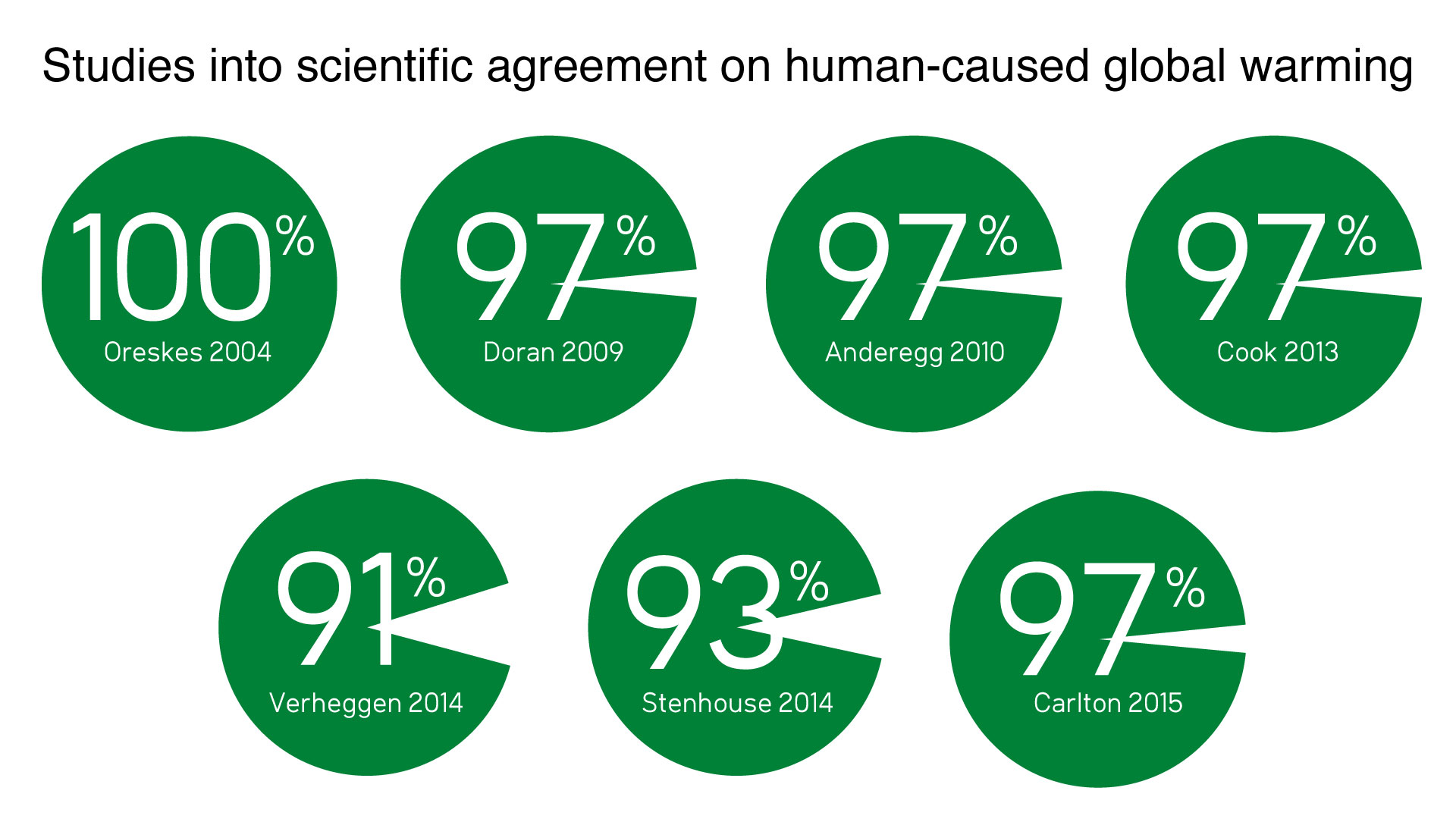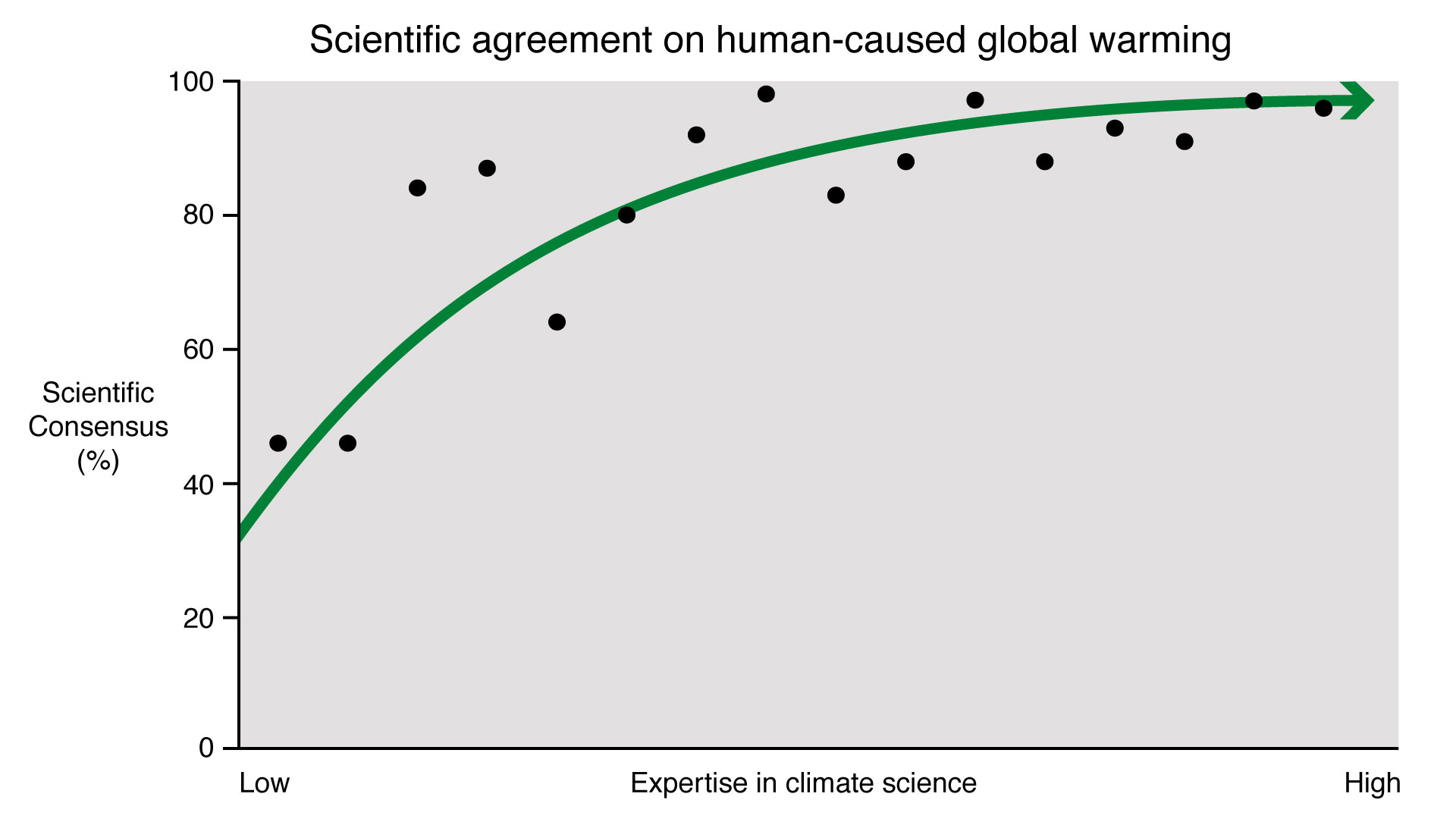 Arguments
Arguments
 Software
Software
 Resources
Comments
Resources
Comments
 The Consensus Project
The Consensus Project
 Translations
Translations
 About
Support
About
Support


Latest Posts
- Skeptical Science New Research for Week #6 2026
- The future of NCAR remains highly uncertain
- Fact brief - Can solar projects improve biodiversity?
- How the polar vortex and warm ocean intensified a major US winter storm
- 2026 SkS Weekly Climate Change & Global Warming News Roundup #05
- Help needed to get translations prepared for our website relaunch!
- Skeptical Science New Research for Week #5 2026
- Climate Variability Emerges as Both Risk and Opportunity for the Global Energy Transition
- Fact brief - Are solar projects hurting farmers and rural communities?
- Winter 2025-26 (finally) hits the U.S. with a vengeance
- 2026 SkS Weekly Climate Change & Global Warming News Roundup #04
- Skeptical Science New Research for Week #4 2026
- WMO confirms 2025 was one of warmest years on record
- Fact brief - Do solar panels release more emissions than burning fossil fuels?
- Keep it in the ground?
- 2026 SkS Weekly Climate Change & Global Warming News Roundup #03
- Skeptical Science New Research for Week #3 2026
- Climate Adam - Will 2026 Be The Hottest Year Ever Recorded?
- Fact brief - Does clearing trees for solar panels release more CO2 than the solar panels would prevent?
- Where things stand on climate change in 2026
- 2026 SkS Weekly Climate Change & Global Warming News Roundup #02
- Skeptical Science New Research for Week #2 2026
- UK renewables enjoy record year in 2025 – but gas power still rises
- Six climate stories that inspired us in 2025
- How to steer EVs towards the road of ‘mass adoption’
- 2026 SkS Weekly Climate Change & Global Warming News Roundup #01
- Skeptical Science New Research for Week #1 2026
- 2025 in review - busy in the boiler room
- Direct Air Capture
- IEA: Declining coal demand in China set to outweigh Trump’s pro-coal policies
Archived Rebuttal
This is the archived Basic rebuttal to the climate myth "There is no consensus". Click here to view the latest rebuttal.
What the science says...
|
97% of climate experts agree humans are causing global warming. |
Science achieves a consensus when scientists stop arguing. When a question is first asked – like ‘what would happen if we put a load more CO2 in the atmosphere?’ – there may be many hypotheses about cause and effect. Over a period of time, each idea is tested and retested – the processes of the scientific method – because all scientists know that reputation and kudos go to those who find the right answer (and everyone else becomes an irrelevant footnote in the history of science). Nearly all hypotheses will fall by the wayside during this testing period, because only one is going to answer the question properly, without leaving all kinds of odd dangling bits that don’t quite add up. Bad theories are usually rather untidy.
But the testing period must come to an end. Gradually, the focus of investigation narrows down to those avenues that continue to make sense, that still add up, and quite often a good theory will reveal additional answers, or make powerful predictions, that add substance to the theory.
So a consensus in science is different from a political one. There is no vote. Scientists just give up arguing because the sheer weight of consistent evidence is too compelling, the tide too strong to swim against any longer. Scientists change their minds on the basis of the evidence, and a consensus emerges over time. Not only do scientists stop arguing, they also start relying on each other's work. All science depends on that which precedes it, and when one scientist builds on the work of another, he acknowledges the work of others through citations. The work that forms the foundation of climate change science is cited with great frequency by many other scientists, demonstrating that the theory is widely accepted - and relied upon.
In the scientific field of climate studies – which is informed by many different disciplines – the consensus is demonstrated by the number of scientists who have stopped arguing about what is causing climate change – and that’s nearly all of them.
Authors of seven climate consensus studies — including Naomi Oreskes, Peter Doran, William Anderegg, Bart Verheggen, Ed Maibach, J. Stuart Carlton, and John Cook — co-authored a paper that should settle this question once and for all. The two key conclusions from the paper are:
1) Depending on exactly how you measure the expert consensus, it’s somewhere between 90% and 100% that agree humans are responsible for climate change, with most of our studies finding 97% consensus among publishing climate scientists.
2) The greater the climate expertise among those surveyed, the higher the consensus on human-caused global warming.
Expert consensus results on the question of human-caused global warming among the previous studies published by the co-authors of Cook et al. (2016). Illustration: John Cook. Available on the SkS Graphics page
Scientific consensus on human-caused global warming as compared to the expertise of the surveyed sample. There’s a strong correlation between consensus and climate science expertise. Illustration: John Cook. Available on the SkS Graphics page
Expert consensus is a powerful thing. People know we don’t have the time or capacity to learn about everything, and so we frequently defer to the conclusions of experts. It’s why we visit doctors when we’re ill. The same is true of climate change: most people defer to the expert consensus of climate scientists. Crucially, as we note in our paper:
Public perception of the scientific consensus has been found to be a gateway belief, affecting other climate beliefs and attitudes including policy support.
That’s why those who oppose taking action to curb climate change have engaged in a misinformation campaign to deny the existence of the expert consensus. They’ve been largely successful, as the public badly underestimate the expert consensus, in what we call the “consensus gap.” Only 16% of Americans realize that the consensus is above 90%.
Updated on 2016-05-08 by BaerbelW.
THE ESCALATOR

(free to republish)


























































